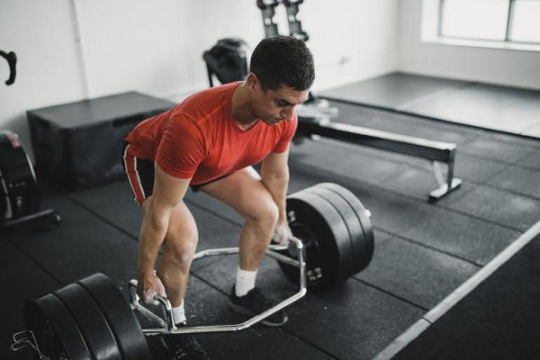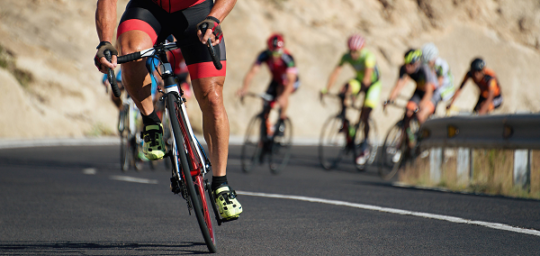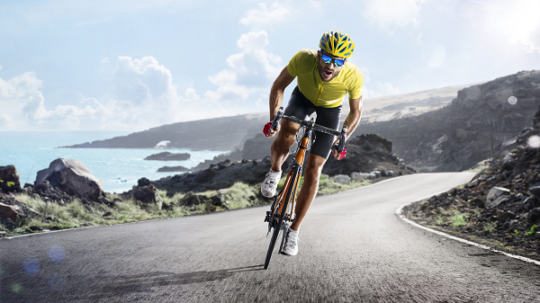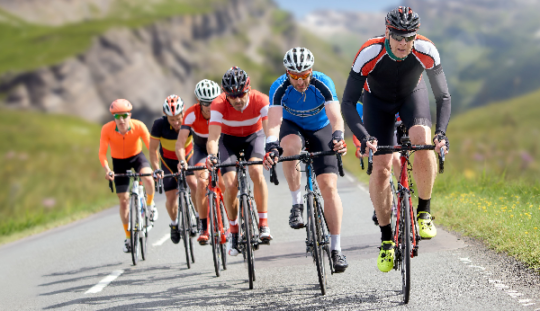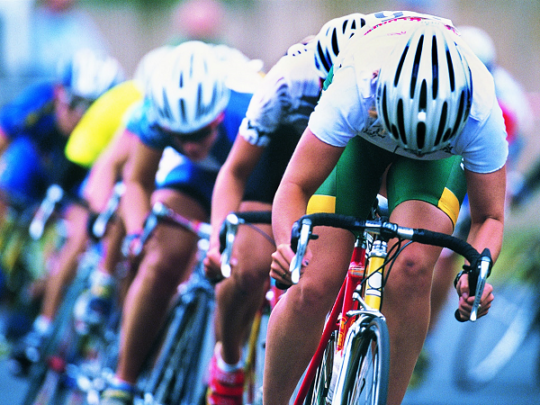Fueling to Win: Carbs/Protein/Fat/Water
Dr. Jan Kasprowicz shares methods to fuel to win. Enjoy!
Let’s start with water. How much water should we drink per day? And what can you tell us about the importance of drinking alkalized water?
Dr. Jan Kasprowicz: The average person needs to drink about half their body weight in ounces of water. If you weigh 150 pounds, you need to drink about 75 ounces of water per day. Now, if you are going to be consuming coffee or alcoholic beverages – for every coffee or alcoholic beverage you consume, you are going to have to consume an additional 10 ounces of water. Now if you are an athlete, you need to still drink half your body weight in ounces of water but you also have to make up for the amount of water you lose when you sweat and perspire during exercise. That’s called your sweat rate, that’s a very important number.
In order to calculate your sweat rate, it is ideal to set aside a morning one day. Wake up in the morning, weigh yourself, you’ve got to be naked. You are going to weigh yourself and there is your pre-exercise weight. Then you are going to exercise for an hour. During that hour you’re not going to consume any kind of fluids and then after your 60 minute workout, go ahead and weigh yourself again. Before you weigh yourself, make sure you towel off all the sweat. You are naked again, you are on the scale and that is your post-exercise weight. Then what you are going to do is you are going to subtract your post-exercise weight from your pre-exercise weight. For every kilogram of lost fluids, you need to drink at least 1 liter of fluid or if you are looking at pounds, for every pound that you lost from exercise, you need to drink 2 additional cups of fluid.
The harder you exercise, the quicker your muscles become acidic which then leads to fatigue. That’s where we need to drink alkaline water. The importance of alkaline water is when we work out we have that lactic acid buildup. We need to buffer that acid. Accumulation of acid also limits the production of adenosine triphosphate which is the main fuel of all cells. Alkaline water will reduce the accumulation of acidity in exercising muscles and improve workout intensity and recovery times.
Are there healthy carbs that we should be eating? And what carbs should we absolutely avoid?
Dr. Jan Kasprowicz: It all comes down to processed or unprocessed. A very simple example I like to use is orange juice. If you are drinking orange juice from a container that now has been highly processed, it’s natural covering is not a paper container. Now, if you are eating an orange, you peel the rind and then that is the only processing that actually takes place. Same thing with rice, brown rice is unprocessed rice. Where when you look at white rice, white rice at one point was brown rice but it was heavily processed which degrades and eliminates a lot of it’s nutrients. Athletes and people in general need to focus on eating minimally processed foods that includes also carbohydrates. There are no bad carbs rather there are processed and unprocessed carbs. You need to eat the unprocessed carbs. Same thing with oatmeal. A lot of people because they are under time restraints, what they do is they microwave their oatmeal in a minute. That’s a highly processed oatmeal form but if you eat steal-grained oatmeal, steel cut, it takes about a half hour to make because they have the husk and it still has a lot of nutrients in there.
We know protein is important but what can you tell us about the difference between animal-based protein vs plant-based protein?
Dr. Jan Kasprowicz: Unfortunately, all animal protein, including dairy, is acid forming in the body which is going to slow your recovery times and make athletes susceptible to other issues as well. For example, if you are consuming animal based proteins: beef, chicken, pork, most fish and dairy, pretty much all dairy, your body is going to become more acidic. If your body becomes acidic and you’ve created a acidic environment in your body becomes more hospitable to different types of bacteria, viruses, yeasts, some cancers and even diseases. The fortunate thing is if you eliminate these animal products and you become more alkaline the viruses, bacteria, yeast, most cancer, and most chronic diseases, they can’t live in an alkaline environment. Also with intense training, it breaks down muscle tissue for the purpose of adaptation and growth. You lift weights in order to get bigger muscles. The only by-product of that is you create a lot of acid. You want to make sure the protein you are giving your body is not acid forming as well. Ideal sources of protein that I recommend that our clients and athletes take are pea protein, hemp and also quinoa, all of which are alkalizing which not only will speed your recovery but also will provide the amount of protein needed for muscle growth.
How do we know what type of fat is good and why does our body need it?
Dr. Jan Kasprowicz: I get this questions lot. I always tell people, “fat does not make you fat.” By eating fat, you are not going to get fat. What actually makes you fat is consuming sugar. Sugar is converted into acid and then therefore, your body is going to use fat as a buffer. Fat is a very alkaline source. Fat is also essential for good health and also for recovery. It is an excellent source of fuel as well. For every gram of fat, you get about 9 calories of energy. For every gram of carbohydrates, you only have 4 calories of energy. It’s an ideal fuel source especially for long distance endurance events. Fats can be found in coconut, flax seed, nuts, avocados are very beneficial for the body and will reduce inflammation and speed up the recovery especially after intense training. Once again, we need to stay away from processed fat just like we need to stay away from processed carbohydrates. Any fats that occur in their natural state.
What foods should we eat to start our day?
Dr. Jan Kasprowicz: In the morning, a lot of people actually don’t even eat breakfast anymore because they are on so many time constraints. If we slept for 6, 7, 8 hours the previous night, that is 6, 7, 8 hours that we literally fasted, hence the name breakfast. We just broke our fast. The first thing you want to eat is something that is alive. Your body needs something alive. I would recommend 12 ounces of some type of alkaline water, preferably with some type of super green powder in there which is basically wheat grass and basically some other high biometric value grasses in there and something with a piece of fruit. That is an ideal way to start your day because there is a biometric value which is going to give you energy but it’s also very alkalizing. Therefore, when you have your coffee later in the day which is very acidic you can counteract the effects of all the acidity you are going to be putting into your body later.
Learn more
If you are interested in speaking with Dr. Jan Kasprowitz visit www.chirporaticandsportsrecovery.com or call 917-748-2902 to schedule an appointment.
Click here to receive more information & to schedule your assessment
